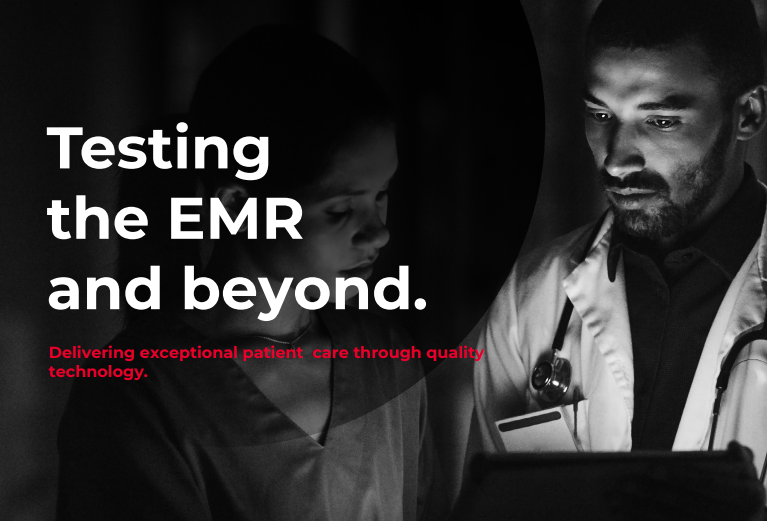Testing the EMR and Beyond
With each passing day, technology becomes more integral to our lives. In healthcare, recent world events are accelerating this trend.
Many healthcare providers are embracing the benefits that electronic medical records (EMR) or electronic health records (EHR) can offer. Throughout this guide, we will refer to these digitized healthcare IT platforms as EMRs. When they work well, EMR systems provide accessibility and visibility into a patient’s medical history. This visibility enables healthcare professionals to deliver better care. But there is more to gain from this healthcare technological revolution. To deliver exceptional patient care, healthcare professionals must implement further modernization of workflows, systems, and medical devices.
Consider the huge amount of administrative work involved in basic patient care. Or the colossal effort needed to digitize health records, patient registrations, appointment scheduling and rescheduling, discharges and transfers, insurance submissions and claims, laboratory results, billing and invoicing, e-prescriptions, and much more.
Clerical work must be accurate for patient safety and compliance. Patient records must be up to date and available 24/7. Instruments need to integrate with systems and work with no margin for error.


